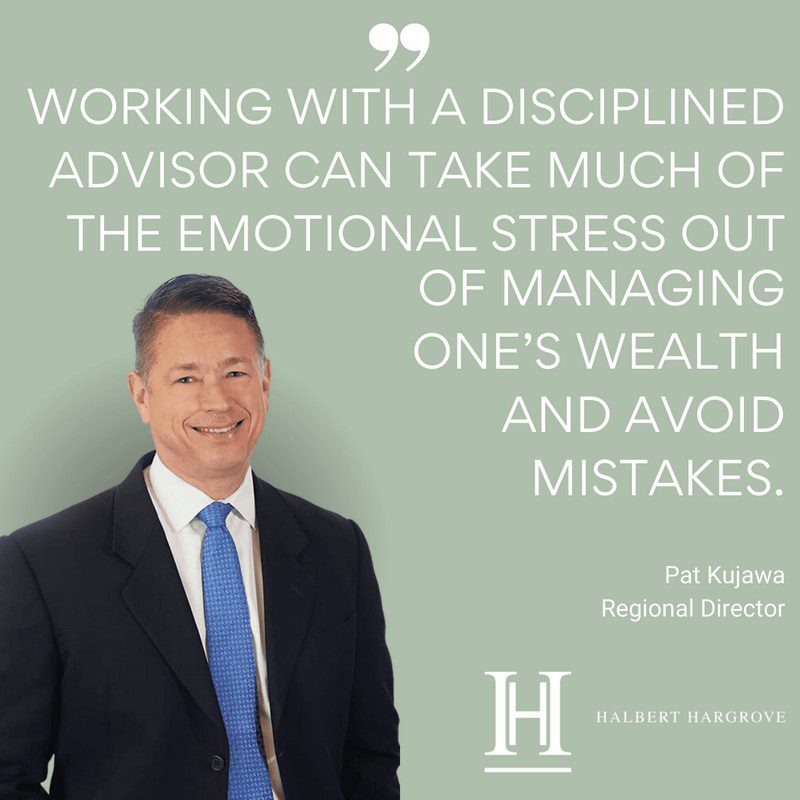By James Royal, Rankrate featuring Pat Kujawa, Regional Director
A financial advisor can be a wonderful resource for getting your finances in order, offering you expert advice across a range of financial matters. But financial advisors are not all created equal, and those looking for an advisor must understand the potential drawbacks of using one.
Here are the pros and cons of hiring a financial advisor and the key things you need to know.
The pros and cons of a financial advisor
Pros of hiring a financial advisor
Comprehensive financial strategy. Today’s best financial advisors focus on developing a comprehensive strategy that can cover many aspects, including investment, insurance, estate planning and more. (Here’s how to find a financial advisor in your area.)
“They can help you develop a comprehensive plan that takes into account your current financial situation and your long-term objectives, and have extensive knowledge of financial markets and a wide range of investment products,” says Rodrigo Faro, CEO of Brainvest, a wealth manager.
Strategy based on your needs. A good advisor listens to your needs and crafts a strategy tailored to your requirements.
They act as a “project manager” for your overall strategy, says Beau Henderson, RICP, founder of RichLife Advisors in Gainesville, Georgia.
That includes investments but also Medicare, long-term care and Social Security.
Show up with your agenda and what you want, he says.
“Take an active co-creator role.”
Get you to stick to the plan. Creating a holistic plan is really only half the battle.
In good times, it’s easy to create a plan and commit to it.
It’s when times get tough that people want to deviate from a plan that can guide them through and opt for what feels emotionally safe or secure. This time is exactly where a good advisor will get you to stick to the proven, long-term strategy, motivating you to do what’s in your interest and avoid the habits that will sink your retirement.
“Working with a disciplined advisor can take much of the emotional stress out of managing one’s wealth and avoid these mistakes,” says Pat Kujawa, AIF, regional director at wealth advisor Halbert Hargrove.
Freed from financial work. At their best, financial advisors can give you freedom to not worry about your investments and instead focus on what you really love doing.
“Many clients find that offloading the stress of managing their own wealth is extremely liberating,” says Kujawa.
“Working with a financial advisor can save you time and allow you to focus on creating a plan and monitoring progress of the plan as you spend valuable time on other endeavors,” says Brad Cast, RFC, wealth manager, Merit Financial Advisors in Alpharetta, Georgia.
Fiduciaries tasked to work in your best interest.
“The most important thing a person should be aware of before engaging a financial advisor is that they should choose a fiduciary advisor,” says Faro. “As a fiduciary, an advisor is required to provide advice that is in their customers’ best interests, even if that necessitates suggesting a less expensive investment alternative or declining a commission,” he says.


